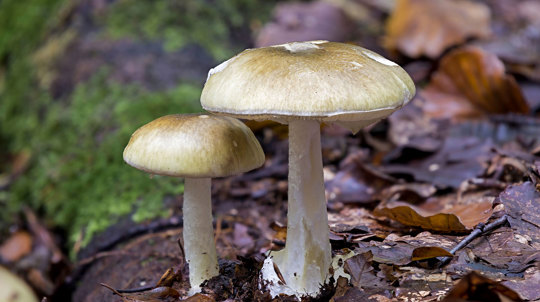Snake venom has been used to develop medicine for high blood pressure, cancer, neurological disorders and heart conditions.
Venomous animals in the UK

Digital content editor
When it comes to venomous animals, appearances can be deceiving.
While venom brings to mind creepy crawlies and slithering serpents, you might be surprised by some of the lesser-known creatures capable of delivering a toxic bite. Read on to discover venomous animals found across the UK in lush woodlands, coastal cliffs and even your own back garden! We’ll also look at what ‘venomous’ really means and top tips for appreciating venomous species safely.
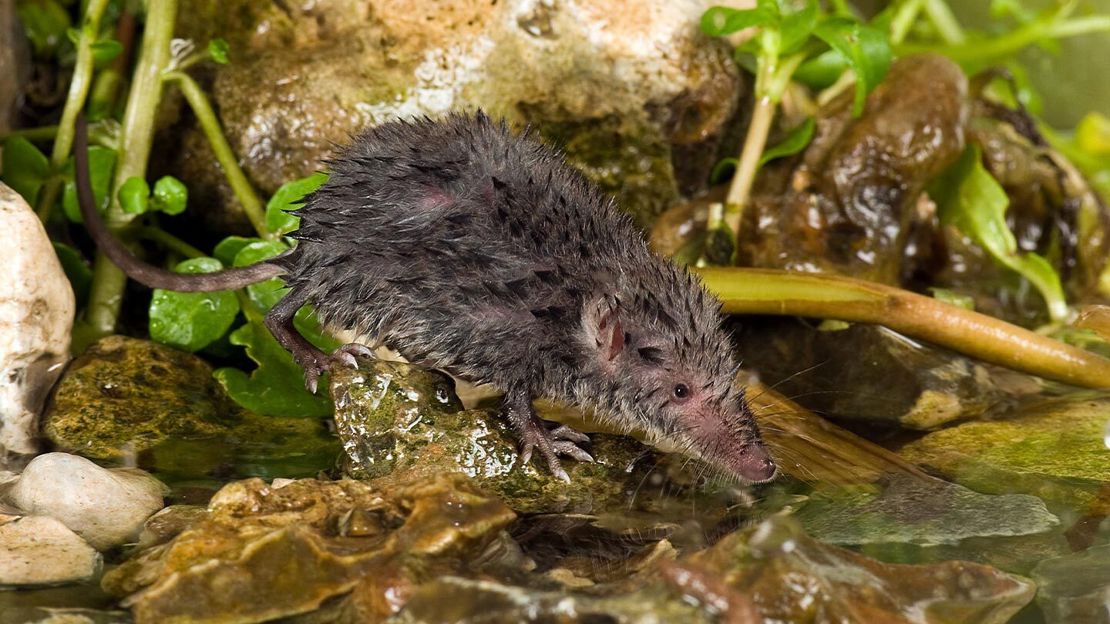
What is venom?
Venom is a toxin, made by an animal, which is actively injected through a wound via bites, stings, claws or spines. Ouch!
Currently, there are more than 200,000 known venomous animal species across the globe.
Top venomous animals in the UK
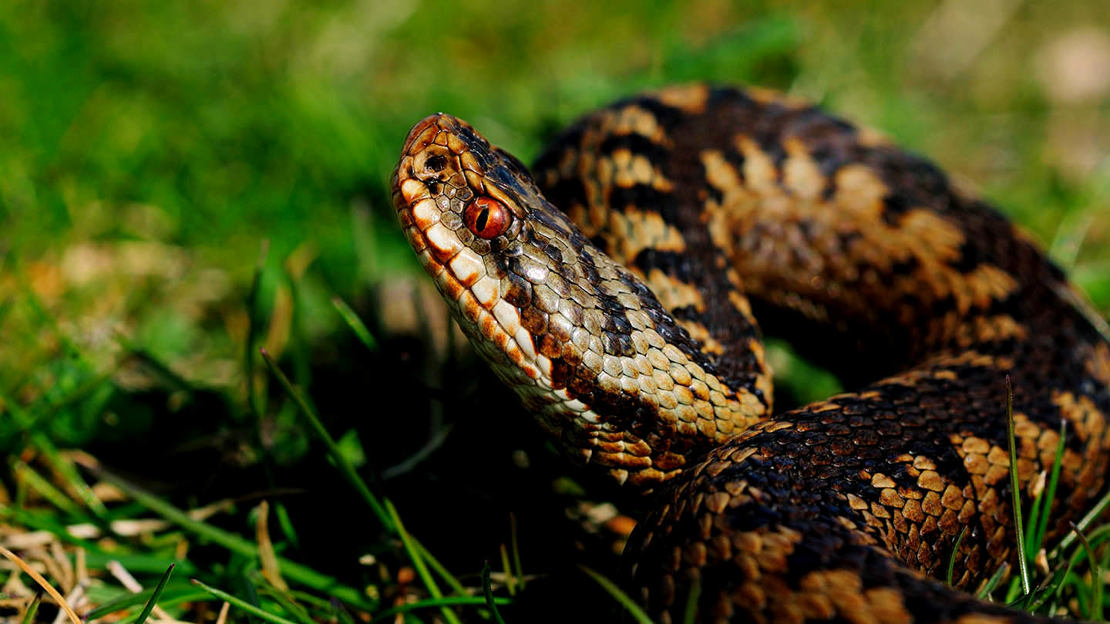
Adder
The adder is the UK’s only venomous snake. It can be found basking in the sun in woodlands, heathlands and coastal dunes. Adders measure just 60-80cm, but what they lack in size, they make up for in might. This secretive serpent subdues small mammals, birds, frogs and newts with its venomous bite, before swallowing them whole.
While adders do possess venom, it's relatively weak compared to many other venomous snakes found around the world. Additionally, their calm and non-aggressive nature means bites are uncommon. Adders tend to stay well away from humans but can deliver a painful bite to people who handle them or step on them accidentally. In extremely rare cases, their venom can be fatal.
Water shrew
Don’t be fooled by the water shrew’s velvety black fur and tiny stature - this silky little creature has a deadly surprise in store. The water shrew has a venomous bite potent enough to stun and immobilise prey up to 60 times heavier than itself - frogs, fish, newts, crustaceans and snails are all on the menu for these aquatic predators. Humans unlucky enough to be nipped by a water shrew won’t be in danger, but may develop a sore red rash around the bite.
Spotting a water shrew is no mean feat, as they spend their days hiding in burrows along banks and diving for prey in wetland habitats, including ponds, streams and reedbeds.
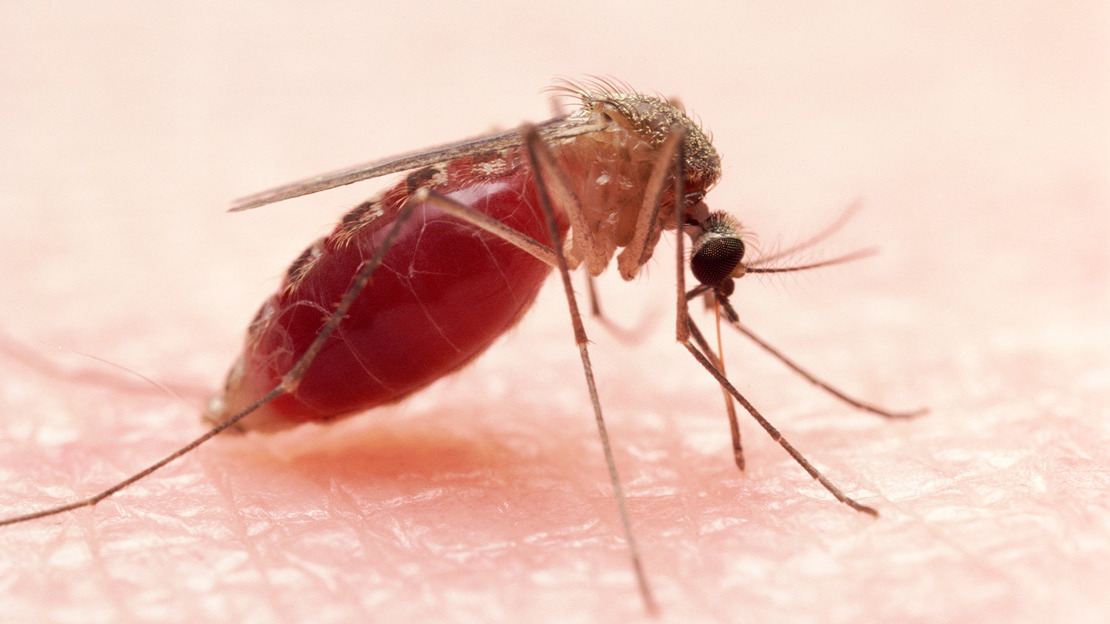
Mosquito
The scourge of summertime, mosquitoes are notorious for leaving itchy red bites on our skin. But did you know that they are also considered venomous? Using a needle-like mouthpart (proboscis) as a straw, mosquitos will pierce human skin and suck up blood, while injecting venomous saliva filled with anti-coagulants into the wound to stop it from closing.
The venom itself is not harmful, but tropical diseases such as malaria and yellow fever carried by mosquitoes can be deadly. Luckily, the mild climate in the UK means we don’t have any dangerous mosquito-borne diseases.
Spiders
Almost all spiders are venomous, helping them to immobilise struggling insects caught in their web. But while perfectly capable of injecting their prey with venom, spiders in the UK rarely have fangs long enough or mouths wide enough to bite humans. Only a half-dozen common species might give you a nip. These include woodlouse spiders, which have long red fangs designed to pierce woodlouse shells.
The false black widow, which arrived on cargo ships from the Canary Islands in the late 1800s, can also give a painful yet harmless bite if threatened – so keep your distance if possible.
Which UK animals are resistant to venom?
Only a handful of mammal species are known to have built up a resistance to venom. Some of these live abroad, such as the honey badger and mongoose. But others live right here in the UK!
Studies have shown that pigs have a protein in their blood which neutralises snake venom, providing some protection from the effects. Hedgehogs are another species with a degree of natural resistance to venom – a handy adaptation which allows them to hunt venomous creatures such as adders.
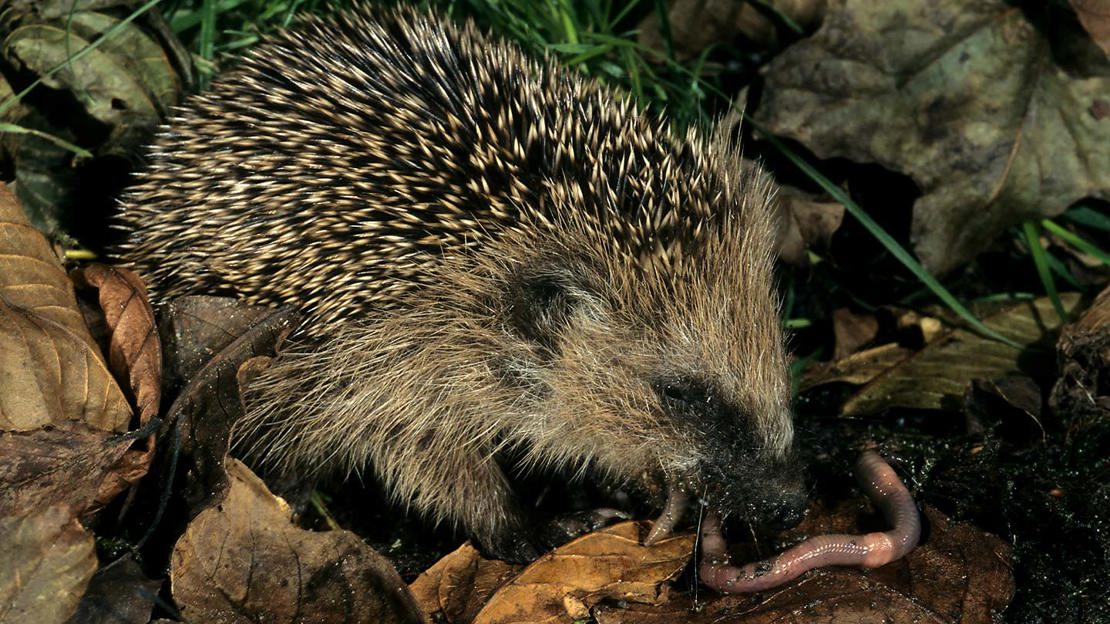
Top tips for keeping safe in nature
- Make sure to wear appropriate footwear and clothing when exploring outdoors. Long sleeves and trousers help protect you from bites.
- If you suspect you might have been bitten or stung, seek medical advice.
- Always keep a respectful distance from wildlife.








